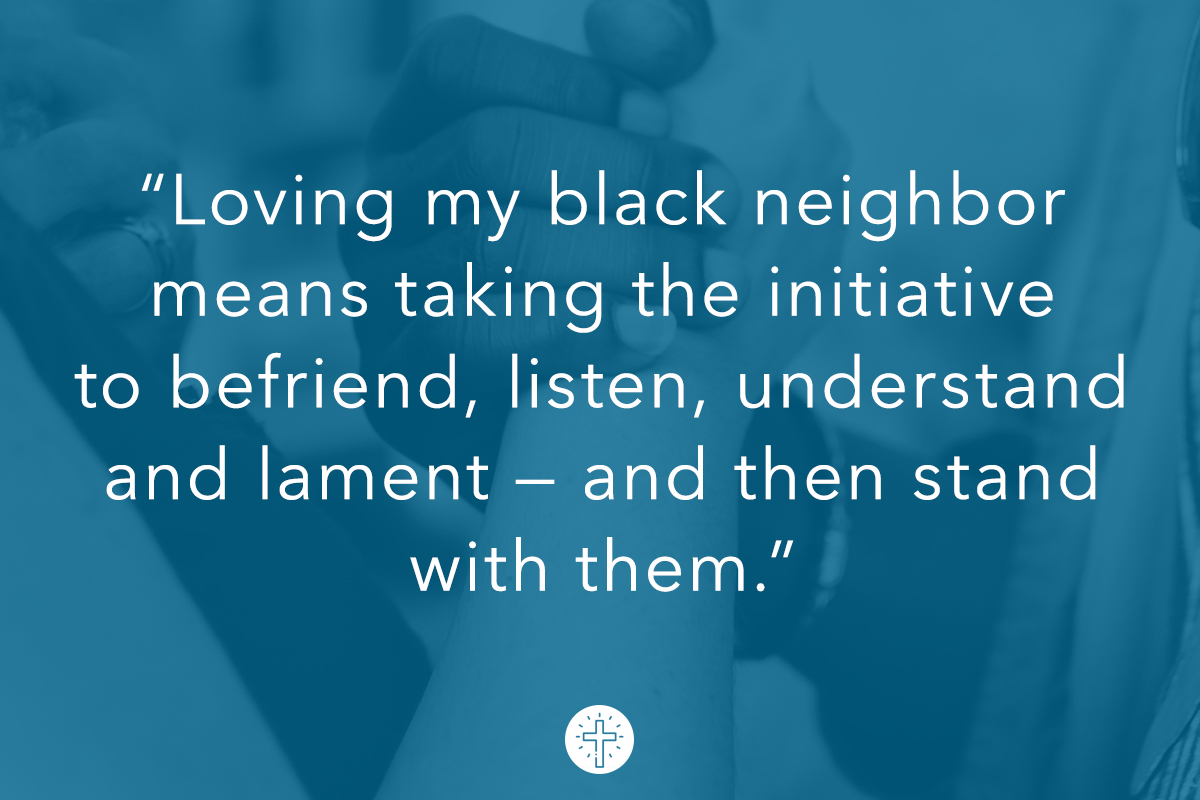
Missions Resources, Sending Churches
Who Is My Neighbor?: On Race, Justice and the Way of Jesus
June 19, 2020
by Dave Hall

The tragic and senseless killing of George Floyd is another painful reminder that there remains much to be done here in America around issues of racism, both personal and systemic. His death reminds us of a wound in America that has not yet healed. It is a wound about which we find it difficult to talk, not only in society at large but also within the Church.
Does the Scripture have anything to say to us in these days? Are there starting points for us? There are many. I will only point to one here and now.
A religious leader asked Jesus one day, “Who is my neighbor?” He hoped to comfortably justify himself concerning the biblical command to “love your neighbor as yourself” (Luke 10:27-29). Rather than a direct reply, Jesus told a story illustrating this kind of love in action. This story, known as the parable of the Good Samaritan, intentionally emphasized the ethnic tensions of that time. Take some time to read it, imagining it in a 21st-century setting.
The actions of the Samaritan in Jesus’ parable provide a defining aspect of Christlike love in action – reaching across ethnic and racial lines to love as we would want to be loved. Such love propels one beyond words to action. I am reasonably sure that Jesus’ cast of characters stunned His listeners and left some of them with awkward, if not uncomfortable feelings.
A Samaritan? Act lovingly toward a Jew? Really?
I am grieved by the grave racial injustice that dominate news headlines, preempting the current pandemic. It is not a new story. It is another chapter in a long story that our black neighbors have endured for generations, even centuries. For many of us who do not come from the black community, our lack of awareness over time has led to inadequate responses to the injustice and accompanying suffering endured by our black neighbors.
We were silent when we should have spoken up. We were inactive when we should have been active. And today, conditioned by our contemporary context, we continue with some measure of blindness and bias.
However, people and organizations can experience seasons of growth and learning. I believe we are now in such a season. And I believe God’s people must rise to the opportunity, humbly seeking His enabling grace.
While TEAM has, for 130 years, sought to proclaim and live out the Gospel among the nations, we also want to stand with our black brothers and sisters here in America. We need to listen, to understand, and to act in love as “joint heirs of the grace of life” (1 Peter 3:7). As a leader in TEAM, I desire to grow in my understanding of and biblical response to such matters as race, ethnicity, and class. I want to ask all the friends of TEAM to do the same.
We affirm the theological truths that:
- All people are image-bearers of God — regardless of skin color, language, gender, age, economic status, or any other category (Genesis 1:26-27).
- As image-bearers of God, all people should be treated with dignity and respect, recognizing that love, not injustice, signals the coming Kingdom that Jesus is revealing through His people (John 13:34-35).
- Racism, whether personal or systemic, is nothing less than the sin of partiality, condemned by God and against which the Scriptures teach (James 2:9-10).
- In Christ, people who otherwise would have no earthly reason to associate can find acceptance, love, and genuine fellowship as members together in that glorious Church Jesus Himself is assembling from all peoples, languages, and tribes (Matthew 16:18, Ephesians 2:14, Revelation 7:9-10).
It’s a matter of “loving our neighbors as we love ourselves.” And especially in these days, loving my black neighbor means taking the initiative to befriend, listen, understand and lament — and then stand with them.
I must speak up for my brother, my sister. Such love in action across racial lines is deeply needed in America. The church of Jesus Christ should be among the first responders to acts of injustice. Rooted in the Gospel, we can together pursue a future that genuinely glorifies God —one of reconciliation and peace.
May God, by His grace, have mercy on us, enabling His Church to be the agents of change that He intends us to be in these days of need. May He change us as He wills to reflect His glory and grace in a world desperately needing healing and peace. And when it comes to loving our neighbors, may we live up to the words Jesus spoke to that religious leader when considering the actions of the Samaritan: “You go and do likewise.”

